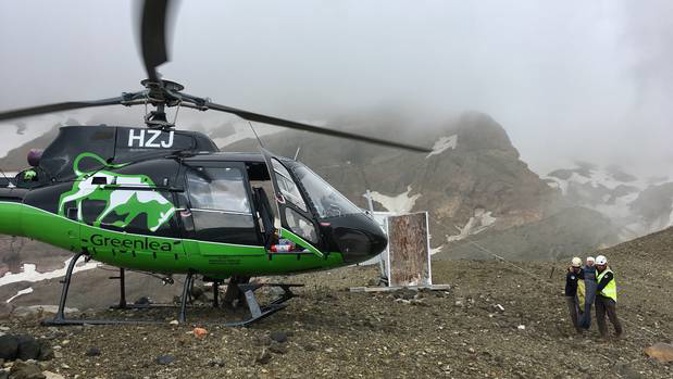
Mayors from the central North Island will travel to Wellington today to meet Health Minister David Clark over the future of chopper rescue services there.
Taupo Mayor Dave Trewavas, Rotorua Mayor Steve Chadwick and Ruapehu Mayor Don Cameron are meeting Clark at his Beehive office this afternoon.
Eleven rescue helicopters operate in the North Island - Northland, Auckland, Gisborne, Hawke's Bay, Hamilton, Tauranga, Rotorua, Taupo, Taranaki, Palmerston North and Wellington.
The Ministry of Health, ACC and district health boards, through the National Ambulance Sector Office, are proposing a nationally integrated and consistent service across the country.
The proposal does not include Rotorua or Taupo and under the proposal, the closest bases would be in Tauranga, Hamilton and Palmerston North.
Cameron has said the proposal had caused widespread concern in affected communities and he has written to Clark and ACC Minister Iain Lees-Galloway asking them to intervene.
He said rescue helicopters would take longer to get to emergencies and pilots would lack the local knowledge of environment they were flying in.
About 500 people crowded into a hangar in Rotorua at the weekend to discuss the proposals.
Chadwick told the meeting said she needed assurances Rotorua would not be disadvantaged by whatever model was eventually adopted.
"We need to know that the level of service for our district will be maintained or even improved and that's what I will be advocating for.
"It makes sense to look at better co-ordinating the service nationally to provide full coverage and improve efficiencies, so I support that rationale – but we don't want the result to impact negatively on levels of service.
Federated Mountain Clubs of New Zealand president Peter Wilson was concerned the increased flying time would put trampers, hunters, and climbers at risk.
"Getting to injured people in the golden hour is critical.
"Given New Zealand mountain-flying conditions, placing rescue services as close to the mountains as possible is necessary. If we move the helicopter bases out, they just won't be able to fly as much," he said in a statement.
Tongariro National Park and Fiordland National Park - both areas where recreation and tourism are booming - will be particularly hard hit as their rescue services will be pulled back to further afield."
Submissions on the proposals close on May 7, with changes to take effect from November.
Rescue helicopter services are generally funded 50 per cent by government and 50 per cent by the community via sponsorship and donations.
Take your Radio, Podcasts and Music with you









